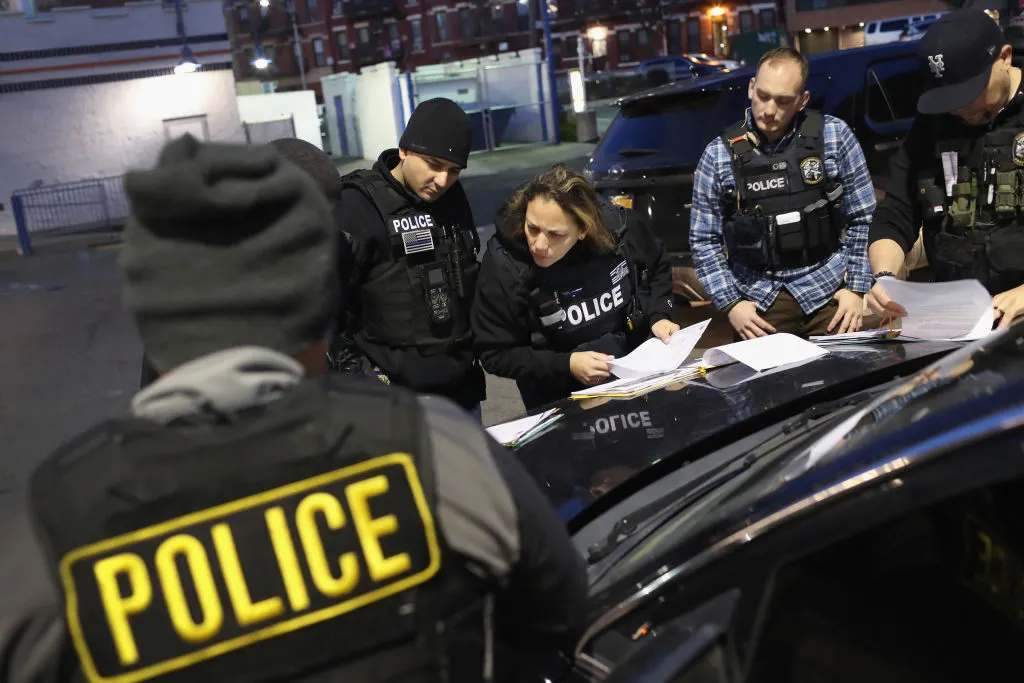President Donald Trump’s statement in an April 15 Fox Noticias interview that his administration would “work with” undocumented immigrants who self-deport from the country and return them to the U.S. “if they’re good, if we want them back in,” has not assuaged employers’ staffing concerns amid immigration crackdowns, employer-side attorneys told HR Dive.
Trump might need to work with Congress to pass legislation in order to create such a program, said Bruce Buchanan, senior counsel at Littler Mendelson. Even if that were possible, he noted it is not clear how undocumented workers who are currently weighing the option of whether to leave the country would react to such a program.
“The concern always with this president is he says things, but is there any action behind it? Is someone drafting legislation that will put this in place? Or is he just using it as an incentive for people to leave?” Buchanan said. “As they say, the devil’s in the details, and we didn’t get a whole lot of details.”
Trump’s remarks signaled a potential addendum to an immigration enforcement agenda that is set to ramp up, featuring more frequent audits of paper and electronic Form I-9s by U.S. Immigration and Customs Enforcement as well as increased worksite visits. The president has said that these moves are essential to enforcing immigration laws.
But the pattern of enforcement operations may chill employers’ talent operations. Mary Pivec, attorney at Pivec & Associates PLLC, told HR Dive that the Trump administration’s targeting of foreign scientists, engineers and students teaching and studying in U.S. universities and laboratories would discourage key talent from migrating to the U.S.
“If the U.S. makes it impossible for people to live and work here, they will go elsewhere,” Pivec said. “Why stay here and be persecuted? Why have your children be subject to searches and seizures, or have your phone seized at an airport to see whether you’re saying anything negative about this administration? It’s going to be a drain on the talented people that we want here.”
In an email following up on Trump’s April 15 remarks, Pivec told HR Dive that Trump’s statement did not change the on-the-ground talent issues employers face. “Ad hoc ‘fixes’ floated by the President don’t begin to address the labor shortages that exist and can only get worse as Trump’s ‘mass deportation’ campaign continues to play out,” she wrote.

U.S. Immigration and Customs Enforcement officers prepare for morning raids to arrest undocumented immigrants on April 11, 2018, in New York, N.Y. Recent enforcement actions have caused employers to scrutinize their compliance processes, attorneys told HR Dive.
John Moore via Getty Images
Employers now wary in their hiring processes
Trump’s enforcement efforts already presented employers with a need to scrutinize their Form I-9 compliance, including electronic Form I-9 programs provided by vendors. But the knock-on effect of the administration’s enforcement posture is that it has made employers hesitant to hire foreign workers, Chris Thomas, partner at Holland & Hart, said in an interview.
Employers can’t discriminate against employees who are foreign-born, Thomas said, but “they are at least a little more wary of their onboarding processes to ensure they properly screen the documentation of the I-9 process.”
Despite the administration’s aggressive enforcement plans — the Republican Party’s 2024 campaign platform called for the largest deportation program in American history — permit applications for work authorization remained elevated entering 2025, suggesting that immigrant workers continued to contribute to labor supply growth, according to a Brookings Institution analysis of USCIS data.
“Even so, all of this chaos is rattling both employers and employees.”

Chris Thomas
Partner, Holland & Hart
That trend could be constrained, in part, by the Trump administration’s partial termination of Temporary Protected Status designations for Haitians and Venezuelans. These changes caused “panic” among employers, Thomas said, though a federal judge enjoined in March the administration’s action with respect to Venezuela designees.
Other programs have been targeted as well, such as the categorical parole programs for Cubans, Haitians, Nicaraguans and Venezuelans and their immediate family members. The U.S. Department of Homeland Security terminated these programs — created during the Biden administration — in March. A federal judge stayed parole termination notices sent to program participants in April, but the agency has nonetheless said no new parole requests will be processed.
Trump’s targeting of international students is multifaceted. Thomas noted that the administration sought to revoke F-1 visas with Optional Practical Training, a category that allows students to seek temporary employment directly related to their areas of study for up to 12 months.
But this specific action has been slowed by federal courts, Thomas said in a follow-up email, meaning that student and OPT workers may continue to remain in the county, work where authorized and even apply for programs like the H-1B visa category in the long term. DHS also reportedly began to reinstate the records of some international students whose records the agency terminated, according to Bloomberg Law.
“Even so, all of this chaos is rattling both employers and employees,” Thomas said in the email. “Many employees in these categories have simply given up and returned abroad. Employers are also dealing with the uncertainty of a workforce, even if those employees have received temporary reprieves, that may not be able to continue in their current positions.”
Now applying: Aunts, uncles, children
While the battle over immigrants’ legal status advances, employers are advised to begin the process of finding employees who are authorized to work, Buchanan said. But the reaction he has heard from many clients “usually is, ‘I can’t find any help.’”
The search, especially for smaller employers, is so extensive that it has caused some to turn to family members for help. One of Buchanan’s clients hired his daughter, a high school student, and others have enlisted aunts, uncles and cousins, even if only on a temporary basis.
Seeing the potential talent effects of immigration, states may decide to act. In Florida, Republican lawmakers introduced a bill, SB 918, that would remove state work restrictions for minors ages 16 and 17 as a response to the loss of immigrant workers. Among other provisions, the bill would eliminate restrictions prohibiting 16- and 17-year-olds from working more than 8 hours a day on school nights and more than 30 hours during school weeks.
“I’m not sure that’s the long-term solution for all states, but at least it’s been proposed,” Buchanan said.
View the original article and our Inspiration here


Leave a Reply